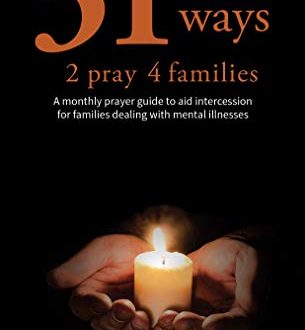
Considering Ash Wednesday and Lent
Today is Ash Wednesday – what exactly is this day? What are the origins? Is this something I should be aware of and participate in?
This day of repentance, which for many in the Western church marks the beginning of Lent, the 40-day period of fasting before Easter following the example of our Lord who spent 40 days in the desert to fast and pray (Matthew 4:1-11). It is also known as the “Day of Ashes,” so called because on that day at church the faithful have their foreheads marked with ashes in the shape of a cross.
In the Old Testament ashes were used for two purposes: as a sign of humility and mortality and as a sign of sorrow and repentance for sin. Dusting oneself with ashes was the penitent's way of expressing sorrow for sins and faults. Ancient examples of expressing one's penitence are found in Job 42:3-6, Numbers 19:17, Jonah 3:6, Matthew 11:21, Luke 10:13 and Hebrews 9:13. The Christian connotation for ashes in the liturgy of Ash Wednesday has also been taken from this Old Testament biblical custom. Receiving ashes on the head as a reminder of mortality and a sign of sorrow for sin was a practice of the Anglo-Saxon church in the 10th century.
For many Christians, the practices of Ash Wednesday are the annual reminder of where our hearts should be in relation to God in deep appreciation of Jesus’ sacrifice for our sins on the cross.
Dr. Barry Jones, Dallas Theological Seminary professor, explains - “Part of what Lent is all about is entering into our own “spiritual wilderness,” a time of introspection and self-examination, a time of sober reflection on our spiritual health. Lent is a time of keen attentiveness to the reality of God’s presence and to the reality of our own sinfulness (for the two go hand in hand). It's a time of repentance, fasting, and prayer. A time of emptying ourselves so that we can be filled. A time of purging our lives of the things that hold us in their grip. The problem is that we don’t like ‘the wilderness. Often we prefer the easy life of the tourist to the rugged commitment of the pilgrim. In Lent we are invited to stop playing and to take our faith seriously, to enter into a focused time of spiritual reflection and renewal, asking God to help us uncover the junk in our lives that chokes our souls, that weighs us down and trips us up.”
These 40 days offer a chance to deny yourself for the purpose of being present to God; a chance to prepare ourselves for His passion on Easter; a chance to observe this season as a spiritual discipline for reflection on our need, for repentance of that which we use to make life work apart from God and for renewal asking God to do some new work of His spirit in us.
Are you considering observing Lent? Sometimes the only thing associated with the Lenten season is “What are you giving up for Lent?”
While this is not an unreasonable question, it will only take you so far. The real question of the Lenten season is, “How will I repent and return to God with all my heart?” This invites an even deeper question: “In what areas of my life have I gotten away from God, and what is His invitation to me for finding my way back?”
Not having grown up in a liturgical tradition, I have come to appreciate and value the meaning of some of these practices of the ancient church. They give us, as Christians, an opportunity to be more intentional in our desire to know God better.
For more insight, here are some suggested sources:
Lectionary Readings for Ash Wednesday: Joel 2:1-2, 12-17; Psalm 51:1-17; II Cor. 5:20-6:10; Matt. 6:1-6, 16-21
Call to Life, Called to Love: Lenten Reflections from the Works of Henri J.M. Nouwen
If you want to read more about Lent and “Christian year spirituality” consider Robert Webber’s book Ancient Future Time: Forming Spirituality through the Christian Year, Baker Books
.
google image [www.bethpagechurch.org]





2 Comments
Mandy Fritsche
Lent
This is my first year to really enter into Lent with a contemplative heart. This re-frames Lent for me: " The real question of the Lenten season is, “How will I repent and return to God with all my heart?” This invites an even deeper question: “In what areas of my life have I gotten away from God, and what is His invitation to me for finding my way back?” I appreciate how you've explained the opportunities that the Lord invites us to in this season…. an opportunity to humbly lay down the ways that I depend on self, and instead look to Him in fresh ways of dependence. I anticipate great things during this season with Him!
Gail Seidel
So accurately said!
I agree,Mandy, with your anticpation. I am also anticpating what God will do as I respond to His conviction.Blessings on your Lenten journey. May you be aware of the Presence of Christ throughout each day.